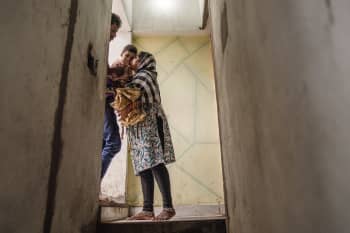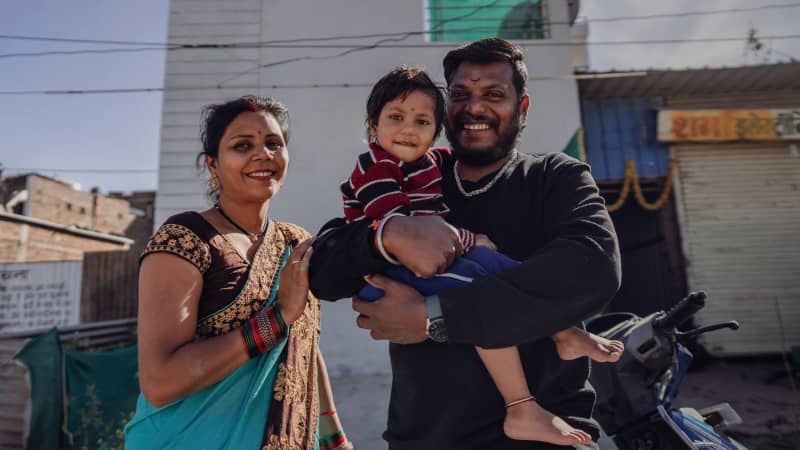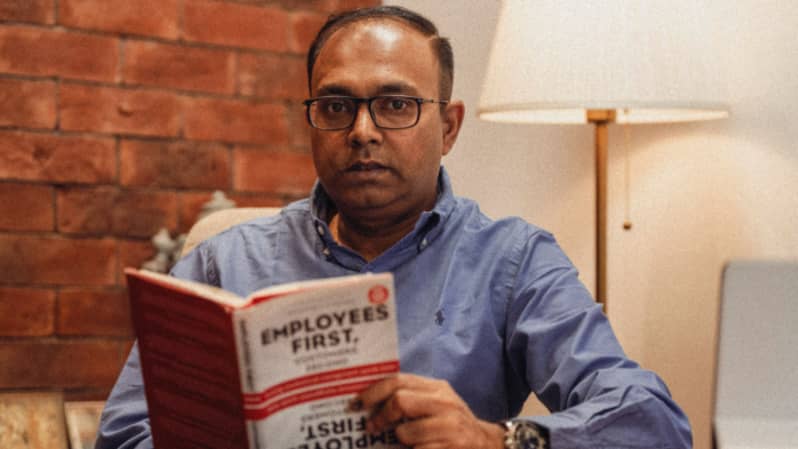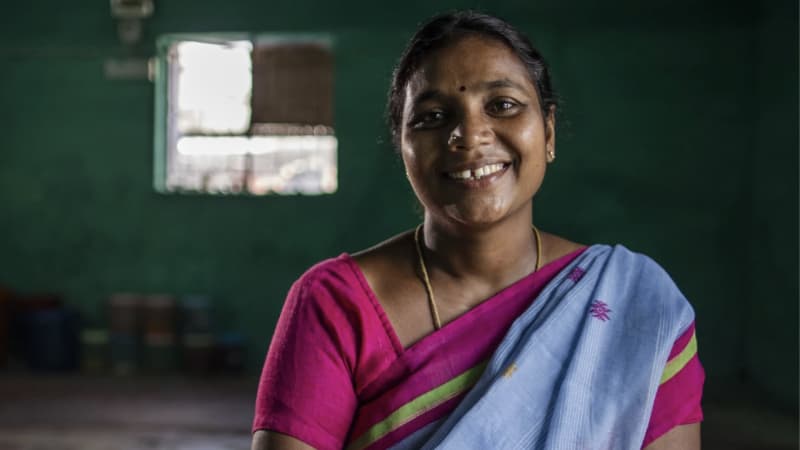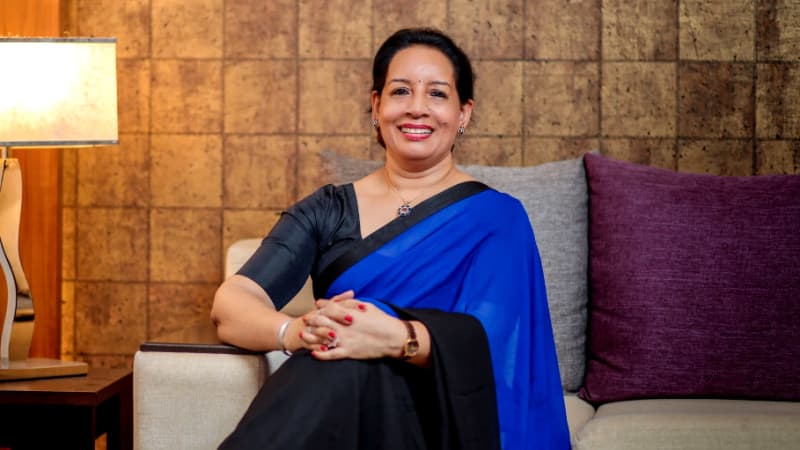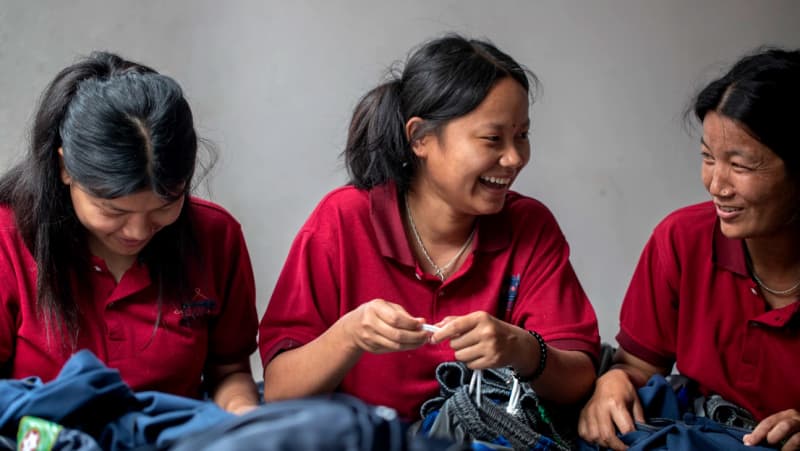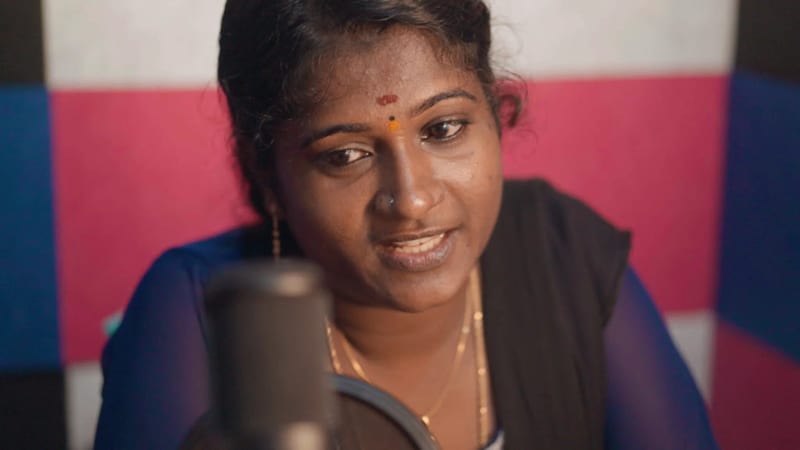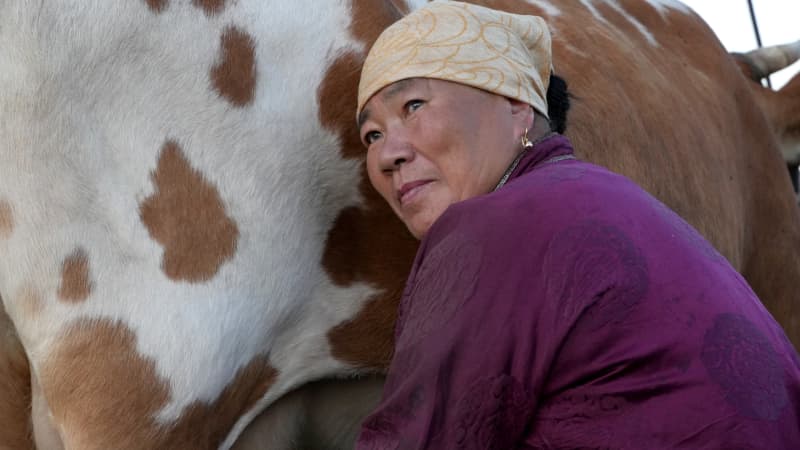Seeking Shelter
A tech-driven startup is helping make homeownership a reality for India's underserved

The two-bedroom house in the Palakkarai neighborhood of Tiruchirappalli, Tamil Nadu, in South India, is inconspicuous. The lot sits behind a construction site in a narrow alley leading to a bustling thoroughfare, where fast-moving motorcycles fight for space among trucks, autorickshaws, cars, and pedestrians.
For Barveen Banu, 39, who runs a home-based embroidery business, the journey to homeownership was the result of years of sweat, tears, heartaches, dreams lost and found, and eventually, freedom.
“I had lost hope, and I had so many problems,” Banu said. Her family moved five times in seven years, because landlords didn’t like renting to a large family like hers, which also included her daughter’s family of three. Each move cost the family about 10,000 rupees, or $116. “I was crying a lot,” she said. “Money was not available. There was a lot of tension. But I had to build the house.”
Just a year ago, without access to financing to hire a construction crew, Banu took on the task of building the foundation of the house herself. While pregnant with her youngest child, she made eight trips a day to a public water tap to fetch water to mix and cure concrete. Each time, she had to nervously hold onto three 15-liter jugs while sitting on the back of a scooter, while her daughter carefully navigated the narrow, winding alleyways. “I was scared, but there was no other way,” said Banu, a mother of five, who recently lost her eldest son to cancer.
The road to a housing loan was even bumpier, a common struggle for lower-income people, especially women, who are often locked out of finance to buy or build property. She applied at two traditional banks and two financial institutions. She was asked to pay them brokers fees totaling 20,000 rupees ($231), an equivalent of a month’s pay for her, but all of the lenders eventually denied her applications, citing the informal nature of her business. She then turned to relatives to help fund the construction of the foundation, but they soon wanted their money back, leading her to sell her precious wedding jewelry.
At an acquaintance’s suggestion, she tried her luck at Vastu Housing Finance, a nonbanking retail lending company serving low- and middle-income families, about 45% of whom earn less than 700,000 rupees a year. The company didn’t employ brokers or charge hefty application fees. But without those upfront payments, Banu figured she had no chance to get a loan. She was shocked when her 10-year loan of 600,000 rupees was approved within 10 days. The company had verified her work orders, called her references, and checked out her husband’s job to make sure they had enough money to cover the monthly payment of 12,400 rupees.
She received the first check from Vastu on January 5, 2024, and completed the house construction three months later. The move-in was on an auspicious Friday morning last April. The kitchen, on a separate floor, is big enough to house her sewing machine and supplies, plus space to meet with customers. She also started saving for her children. “Our family is proud and feeling very good,” Banu said. “I just feel so much satisfaction.”
Photo: Barveen Banu and her daughter Afrin outside their new home in Tiruchirappalli, Tamil Nadu, in South India. She received a home loan from Vastu in January 2024 after four other lenders denied her applications.
“Our family is proud and feeling very good, I just feel so much satisfaction.”
– Barveen Banu, Vastu client
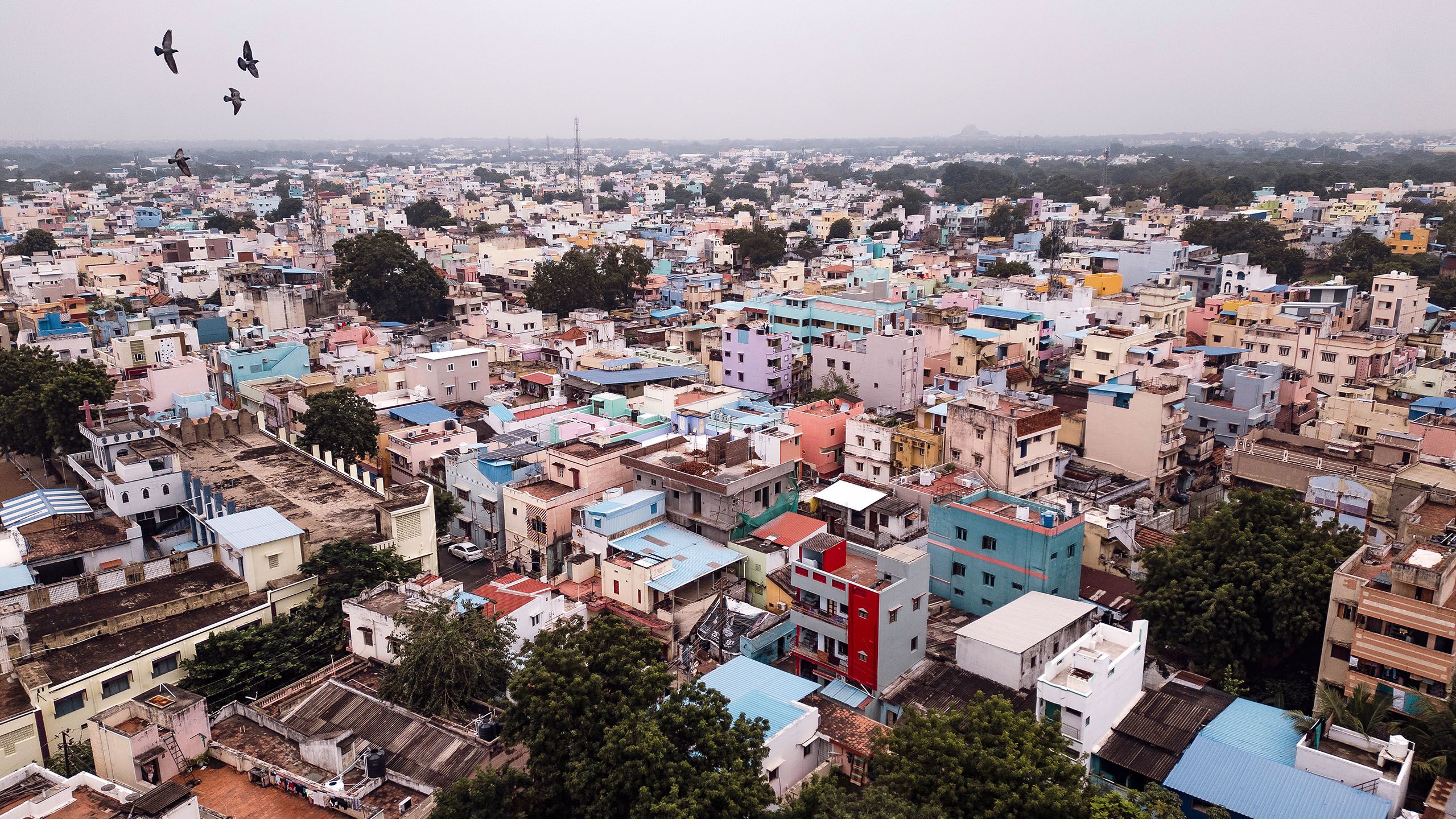
Challenge to Access Housing Finance among Self-Employed, Informal Workers
Banu’s ordeal is a microcosm of an affordable housing struggle in the world’s most populous nation.
An estimated 275 million people in India – more than one in five – lack access to adequate housing. To bridge the gap, the Indian government’s housing-for-all initiative aims to construct 50 million new housing units by 2029.
“A house is not just a physical asset,” said Farid Fezoua, Global Director for Disruptive Technologies, Services, and Funds at IFC. “It provides the stability and opportunities needed to build a future. With homeownership, women can run their business at home, and children can have a safe space to play and study. Inadequate access to housing, on the other hand, stifles human potential and exacerbates poverty and inequality.”
Access to finance remains a challenge. In 2019-2020, only 37% of home loans issued in India were allocated to the affordable housing sector, defined as loans of less than 2.5 million rupees. Borrowers in rural communities face housing shortages twice that of urban areas. Among the most underserved are the self-employed or lower-income people who work in informal sectors and lack formal sources of income or credit history to prove their creditworthiness.
“Addressing the affordable housing gap across emerging markets can generate one of the best returns for society, not just in job creation and economic development, but also in social impact,” said Lingshu Liu, Regional Industry Manager, Financial Institutions Group in South Asia at IFC. “Our collaboration with leading housing finance companies in India focuses on helping more women become proud homeowners.’’
In the fiscal year that ended in June 2024, IFC’s commitments will enable clients to finance more than 270,000 affordable housing loans in India, including 86,000 loans for women.
In 2019-2020, only 37% of home loans issued in India were allocated to the affordable housing sector.
New homeowners share their personal stories of the challenges and success getting their first mortgage.
A Digital Startup Focused on Women, Self-Employed
A like-minded partner for IFC in India is Mumbai-based Multiples Alternate Asset Management, one of India’s largest private equity (PE) fund managers. In 2015, the firm provided $7.5 million in seed funding to Vastu, co-founded by Sandeep Menon and Sujay Patil, two veterans in retail financing. The investment, through Multiples’ PE fund, was backed by IFC, one of the largest PE investors in emerging markets.
Sudhir Variyar, Managing Director, Multiples Alternate Asset Management, an India-focused private equity (PE) fund
Sudhir Variyar, Managing Director, Multiples Alternate Asset Management, an India-focused private equity (PE) fund
Vastu focuses on individuals struggling to secure financing from traditional financial institutions due to a lack of adequate documentation, including owners of vegetable stalls and taxi drivers. Most Indian banks, financing institutions and large mortgage lenders focus on salaried employees living in large urban centers, Menon said.
About 80% of Vastu’s borrowers are self-employed, and most of them are first-time homeowners. Historically, serving these customers is not profitable due to small-ticket sizes, significant operating expenses, and high operational risks, Menon said. Vastu solved the puzzle by developing Pulse, a proprietary technology platform that keeps operating costs low and customer engagement high.
Pulse analyzes a customer’s creditworthiness in minutes, drawing on data analysis based on machine learning algorithms. Consumers are not required to submit any paper forms until the loan is approved, usually in four to seven days after income verification by field agents. What Vastu charges its borrowers is on par with market rates, with its floating interest rate ranging from 12.5% to 17.5% per year.
With $1.2 billion in assets under management, Vastu is now one of the fastest growing affordable housing companies in India, with 221 branches in 170 cities in 15 states, mostly in secondary cities and rural areas, rather than major urban centers, where large banks typically operate.
Even more remarkable, about 98% of Vastu’s loans are made to women as primary-borrowers or co-borrowers, according to the company. In India, women, often bound by patriarchal, cultural and social norms, are less likely to become homeowners. In 2021, 76.4% of men and 46.5% of women in India owned a dwelling either alone or jointly.
“We make sure that the lady of the house is also on the loan,” said Menon. “It does a lot of good for the community. A woman is the anchor of the family, and she keeps it all together. When they own the home, they feel good about it, and there's a lot of ownership and accountability. It helps us get our payments on time. That's a really good thing.”
Backed by Multiples and IFC, Vastu has hired more women in sales and lending. It also launched an all-women branch. The company’s board has two female directors, including Multiples’ founder and CEO Renuka Ramnath.
Given Vastu’s impact, IFC made a direct equity investment of $40 million in the company in March 2024 for a 3.3% stake.
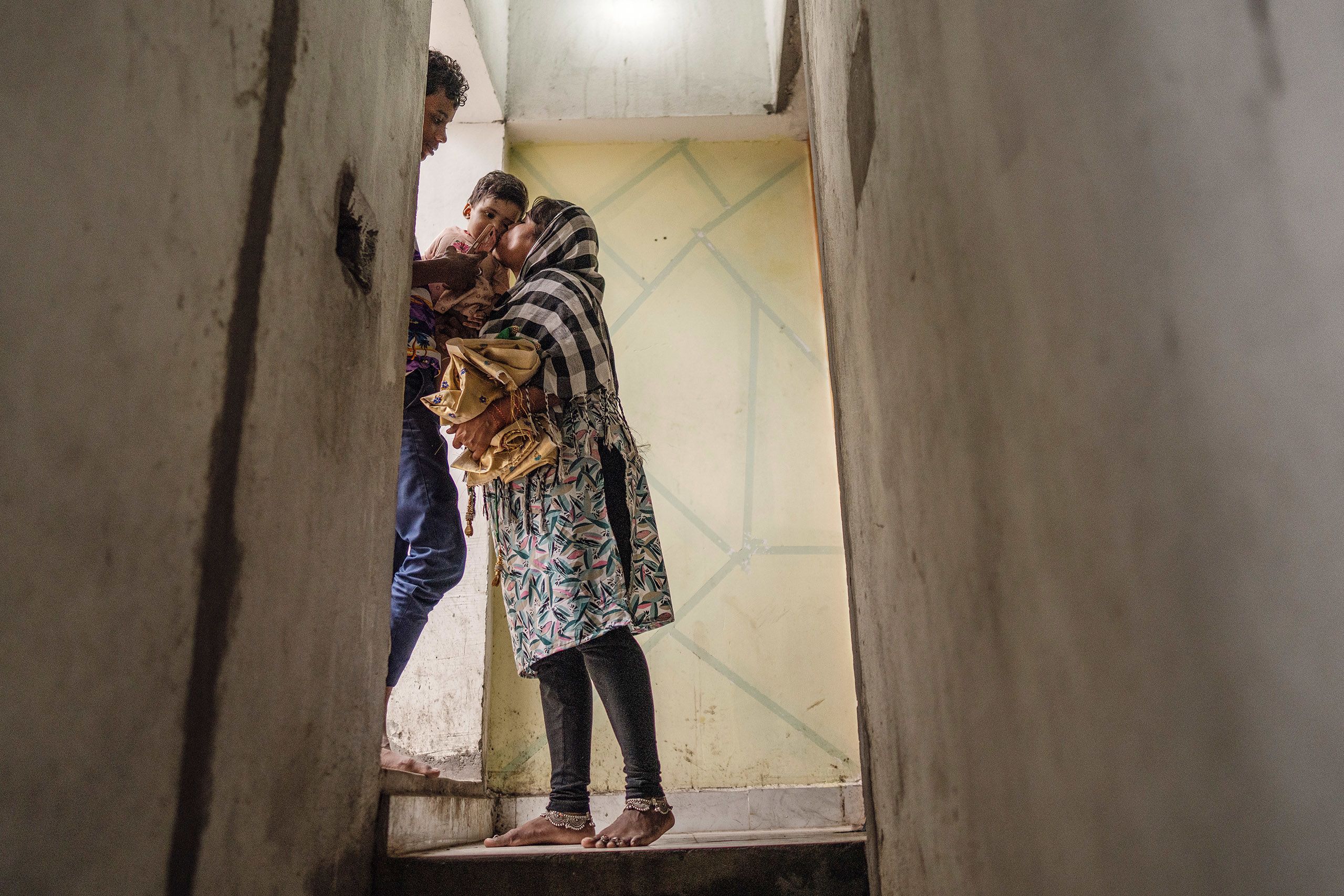
“Vastu helps fulfill a lot of dreams for people who don’t have a credit history.”
– Pooja Jadhav, Vastu client
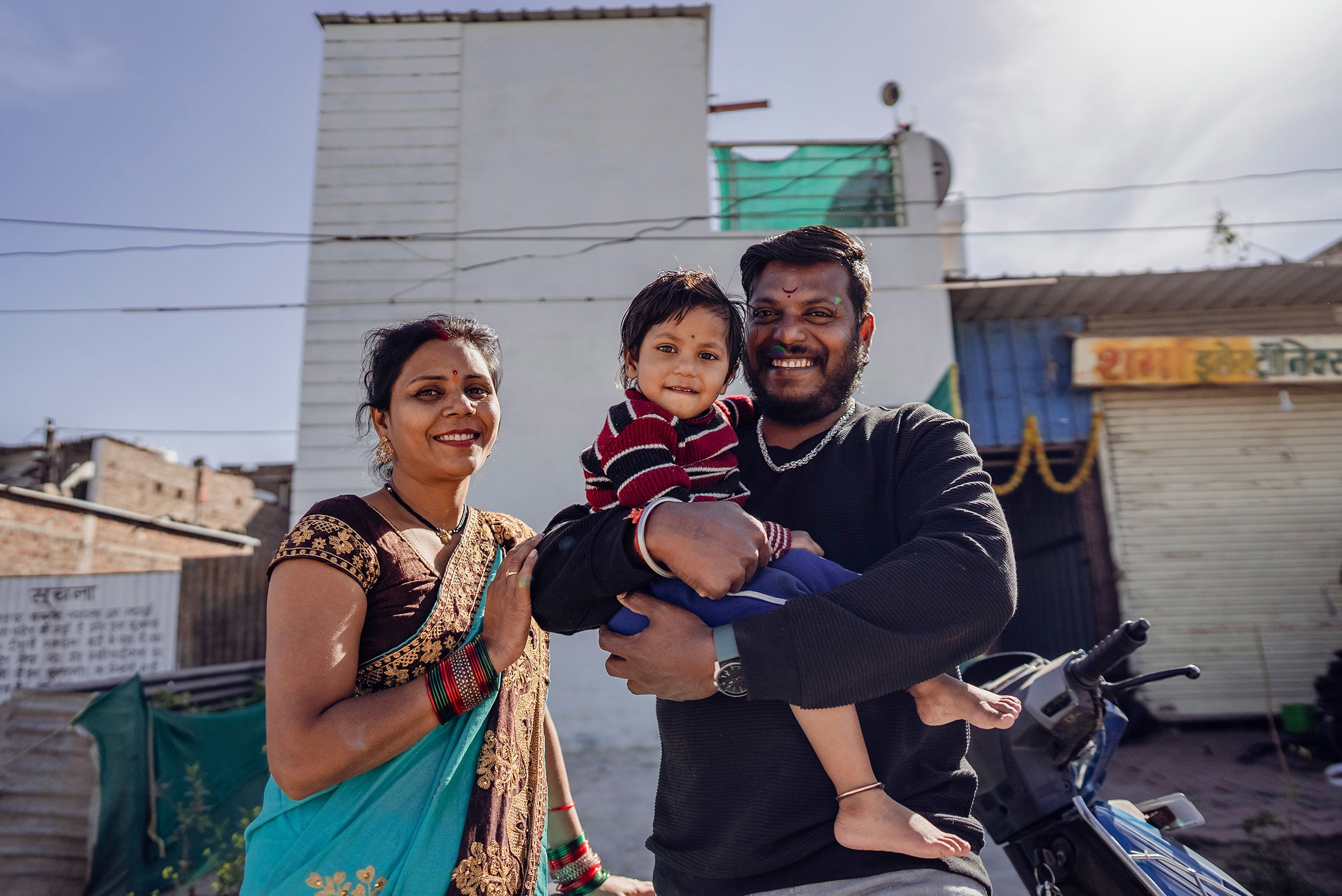
Game Changer
For many Indians without official records but enough earnings to cover a downpayment and a monthly mortgage, Vastu loans offer a life-changing experience.
“Vastu helps fulfill a lot of dreams for people who don’t have a credit history,” said Pooja Jadhav, 36, who lives in the Ram Nagar neighborhood of Indore city, in the state of Madhya Pradesh. “Not everybody has a credit history, but everybody does have a dream.”
Jadhav and her husband, Arun, 30, make about 35,000 rupees a month, but had trouble getting a loan of 600,000 rupees from four banks and financial institutions, which would require a monthly payment of less than 9,000 rupees. She receives cash payments as a typist in a lawyer’s office, but the banks all require a record of a monthly salary deposit for 12 months. Arun’s job as a taxi driver doesn’t come with a formal payment record, either. “It felt a little odd, because the bank people were saying we couldn’t trust you,” she said.
Jadhav started researching nontraditional lenders, and Vastu’s rate was the lowest of the four she contacted. She was approved for the loan about 10 days after applying. Construction took three months.
Immediately after moving in, she bought a temple for worship and a refrigerator, so she could store milk for her two-year-old daughter. She rents out the terrace apartment for 2,000 rupees a month. She also welcomed back her 18-year-old son, who went to live with her mother four years ago because their rental was too small. “I am happy to create a home where we can be with our son.”
Back in Tiruchirappalli, Banu has settled into a busy, but peaceful routine in her new house. One December morning, her newborn slept peacefully in a cloth sack hung from the ceiling of her kitchen. He didn’t stir as Banu started working on her Nagpal-branded sewing machine, next to a pile of colorful fabrics for making blouses, churidars, saris, and kurtis. She earns about 400-500 rupees per product. The machine’s steady humming was punctured by the creaking sound of the pedal and taps of needles moving up and down the fabric.
Her wedding jewels are gone, but Banu has no regrets. Photos of her children decorate her bedroom wall. “I feel so good,” she said. “This is my land, my property. I can do anything I please.”
“I am happy to create a home where we can be with our son.”
– Pooja Jadhav
Sandeep Menon and partner Sujay Patil co-founded Vastu. The company was established 10 years ago by Sandeep Menon and Sujay Patil, two veterans in retail financing. Menon said about 98% of Vastu’s loans are made to women as borrowers or co-borrowers. “We make sure that the lady of the house is also on the loan,” he said. “Woman is the anchor of the family, and she keeps it all together.”
Sandeep Menon and partner Sujay Patil co-founded Vastu. The company was established 10 years ago by Sandeep Menon and Sujay Patil, two veterans in retail financing. Menon said about 98% of Vastu’s loans are made to women as borrowers or co-borrowers. “We make sure that the lady of the house is also on the loan,” he said. “Woman is the anchor of the family, and she keeps it all together.”
Dreamland: A Digital Housing Startup Boosts Homeownership among the Underserved in India
Banu lives with her family and her daughter’s family in the new home. “Our family is proud and feeling very good,” she said. “I just feel so much satisfaction.”
Banu lives with her family and her daughter’s family in the new home. “Our family is proud and feeling very good,” she said. “I just feel so much satisfaction.”
Published March 2025
Read more here






